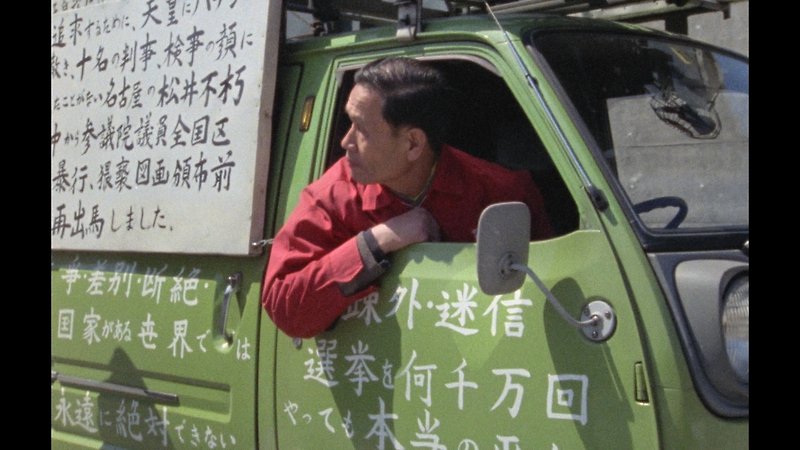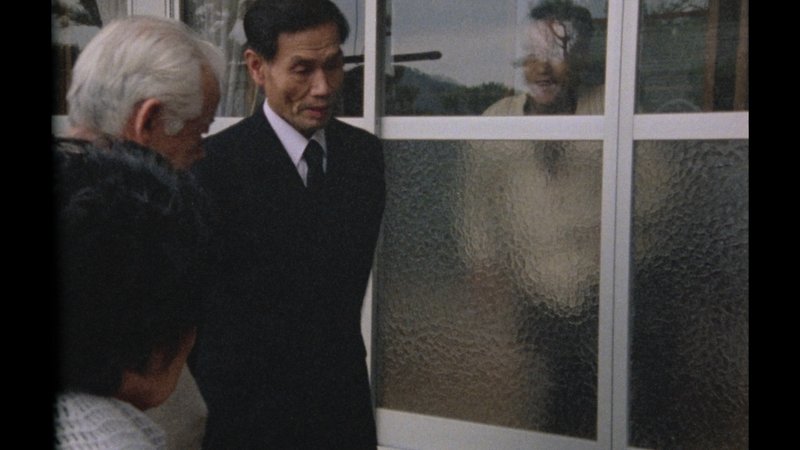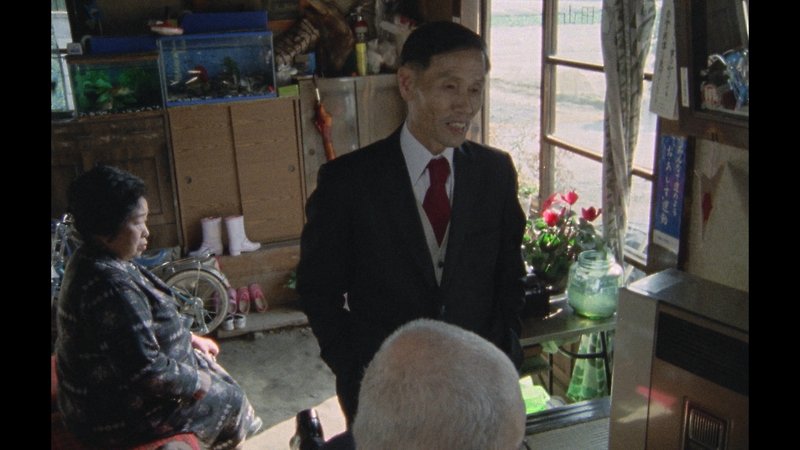In this astonishing portrait of Okuzaki Kenzo, self-appointed scourge of Japanese war criminals and conscience of a nation, modern Japan has erased memory of the Pacific war.
A conformist society – where notions of personal responsibility are not exactly highly cultivated – is well placed to let the individual off the hook. Okuzaki’s insistence on proclaiming the truth is utterly non-conformist... He has been imprisoned for firing pachinko balls at the Emperor and remains convinced of Hirohito’s ultimate responsibility for war crimes. His dawn raids on retired officers exploit and outrage the decorum of Japanese hospitality, but these offences pale beside the physical beatings he administers to those who lie or evade his questions – or the lies he himself tells to cover the appalling brutality in the past.
When the war ended, Okuzaki was amongst a thousand soldiers in New Guinea who, rather than surrender to Australian troops, scattered into the jungle. Only 30 survived. Okuzaki wanted to make a film to show the world why...
For five stormy years, director Hara Kazuo and his formidable subject constantly disagreed over their next move. Accompanying Okuzaki and filming some of his most outrageous, duplicitous encounters, the filmmaker is clearly implicated in the action he films. It’s a jolting experience for the audience too, a series of violent confrontations with any number of vital Japanese taboos. We’re forced to confront questions about whether the hunger for justice justifies his radical means. What’s never in question is the sincerity of his quest to change the thinking of an entire nation. — Bill Gosden
Also screening as part of celebrating 50 years of the film festival in Wellington


